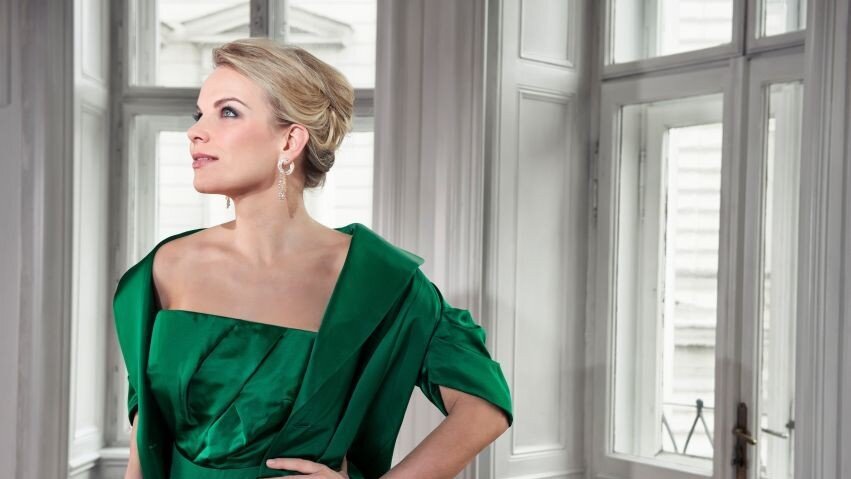Elīna Garanča, one of our times most celebrated mezzo soprano firstly took the role of Bizet’s Carmen in 2010, and since then she has become really successful with it. 30th June 2021 she will perform the most famous parts of Carmen in Müpa, too where the Hungarian State Opera Orchestra will be conducted by her husband, Karel Mark Chichon.
– You have sung Carmen for 11 years. What changes have you done with this character since then?
–I spent many happy years as Carmen, our relationship is still passionate, had many phases and faces and is never boring. We had dark hair, we were also blond, we were young and refreshingly rebellious, but also calculated and had a firm grip on passion. Certainly it also depends on which Don Jose sings next to me, but I’d like to make my next Carmen smarter and at the same time even more unpredictable.
– What do you think about Carmen’s personality?
– In general, Carmen is a femme fatale, a highly independent and irresistible creature. Carmen is little bit like a cat: she can sit two metres away from you and look at you while you call on her like crazy, lure her and want her to come to you. She will come, but only because she wants to! I’m partly like that too. And we both get bored quickly and need to be constantly on the move.
– How do you prepare for concerts and performances?
– From technical point of view, my training suits large theatre spaces and concert halls, I can’t change my technique just because I sing open air. Whether I sing at the Müpa, at the MET, recital or open air: the preparation is always the same. Stamina, endurance, concentration, it’s the vocal care that one can and should do beforehand. I try not to think about all the things that can happen. Of course there are certain things we can’t influence, but that’s exactly why live performances are so exciting and I love them all!
– You will perform 30th June at the Müpa. What were your main aspects when you made the concert programme?
– After such a difficult and mentally heavy year, we wanted to put together a programme that would bring the people some feeling of joy, carefreeness and spark of happiness especially now, at the beginning of summer. We all had enough of drama in the last 18 months and therefore the so to say lightness of the chosen repertoire was very important for us, needless to say it is a great fit for all my colleagues joining me on the stage in Budapest.
– What kind of differences are there between a concert and a theatre performance?
– For me personally, there is not much difference between solo concerts, opera, symphonic repertoire or recitals. But of course after a long opera production, it is always a delight to sing a few recitals or an open-air concert and vice versa, to refresh your mind and inspiration.
– Last time you came to Budapest in 2019. What was your experience about the city and the audience?
– Whole Hungary and particularly Budapest is a place with enormously rich and unique musical history and tradition. For me it is always a pleasure and honour returning to perform here, to a place where people really care about music, history and tradition. Any artist standing on the stage here is aware of the fact, that the audience in Budapest has an extremely well trained ears, which makes me personally even more alert and excited, because I know that if all goes well, our musical connection will be that much stronger. The audience and city have always moved my soul and awarded my music with warm feeling around my heart.
– Have you ever performed with the guest singers of the concert?
– Our artistic paths have only crossed with Kostas Smoriginas, whith whom I was sharing the stage in one of the Cenerentola productions in Riga many years ago, but needless to say that I am sincerely looking forward and can’t wait to meet, sing with and get to know all the guest singers on this project in Budapest too.
– Which roles and operas will you perform in the immediate future?
– After my Carmen „concert version” European tour a couple of open air concerts and performances in Austria during summer, I will appear in a role of La Principessa di Bouillon in Cilea’s Adriana Lecouvreur at the Wiener Staatsoper, then I will become Delila at the Staatsoper unter den Linden in Berlin, Santuzza in Cavalleria rusticana in Zurich and princess Eboli at the Metropolitan Opera early next year. I really do hope that the current constantly changing situation wilI allow me to sing all these and to share all the passion, hate, envy, love and caprices with live audience.











